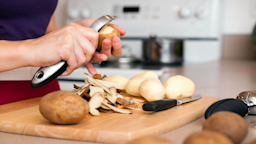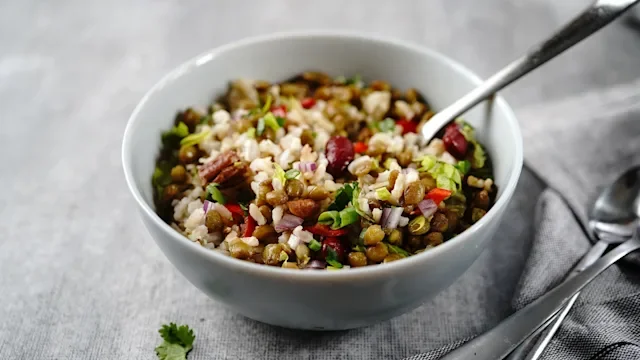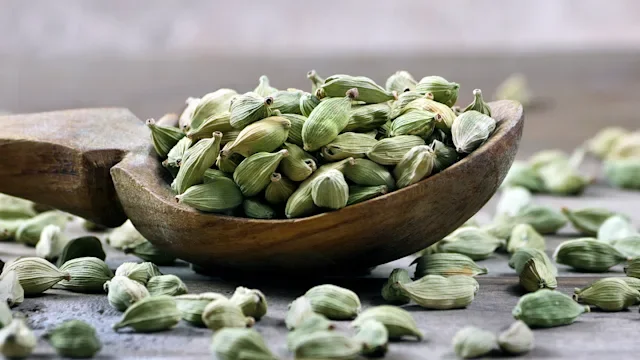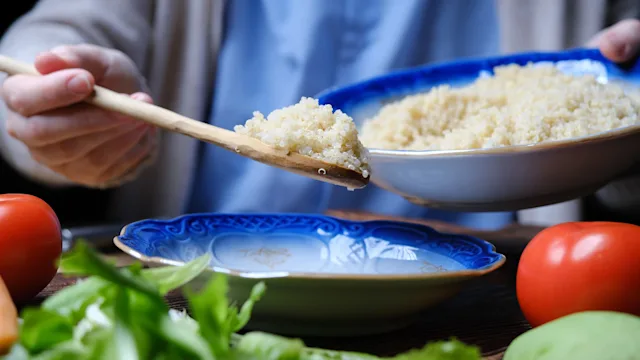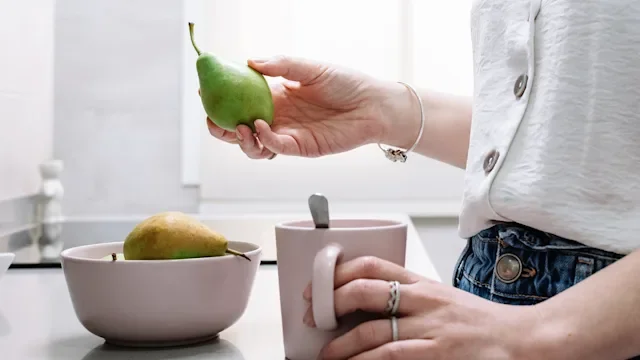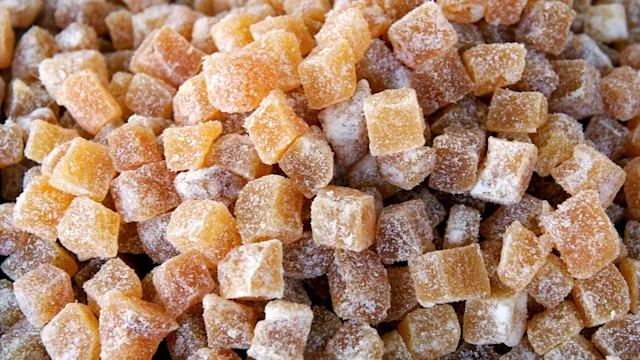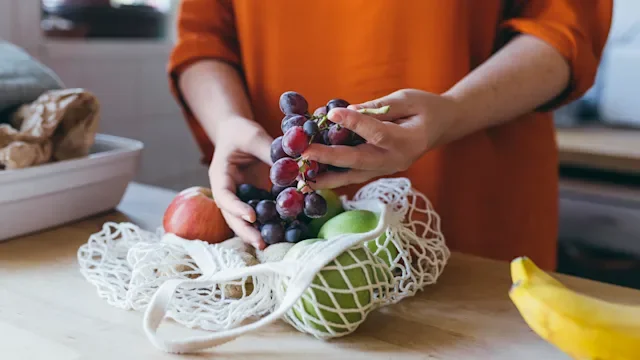Key takeaways:
Antioxidants are a type of nutrient that help protect your body’s cells from damage that can lead to chronic health conditions.
Some of the beverages highest in antioxidants include coffee, tea, and certain fruit and vegetable juices.
There’s no specific amount of antioxidants you need each day. But drinking and eating a variety of antioxidant beverages and foods can help you get the benefits of many different kinds.
Antioxidants are a powerful nutrient that everyone needs in their diet. When you think of antioxidants, you may think of berries, leafy green vegetables, and other foods. And while many plant foods are excellent sources of antioxidants, they aren’t the only way to add antioxidants to your diet. Many drinks contain antioxidants as well.
Here we’ll cover the best antioxidant drinks, and go over what to look for (and what to avoid) when choosing an antioxidant drink.
Why are antioxidants so important?
Antioxidants are nutrients that are crucial to overall health. They help protect your body’s cells from damage caused by free radicals — or unstable molecules. When free radicals build up, they can lead to a variety of health conditions.
Your body is exposed to free radicals constantly. There are free radicals in the environment, from pollution and pesticides. Free radicals are also produced as a part of normal bodily processes. But when too many free radicals build up in your body, it causes oxidative stress. Oxidative stress can increase your risk for:
Cancer
Heart disease
Neurological conditions like Parkinson’s disease and Alzheimer’s disease
Kidney disease
Type 2 diabetes
So, antioxidants help keep free radicals from damaging your health. And you can get antioxidants not just from the foods you eat but also from what you drink.
What are the best antioxidant drinks?
Read on for six drinks that are rich in antioxidants.
1. Coffee
Research suggests that coffee has the highest antioxidant content of any beverage. This is good news, considering coffee is the top dietary source of antioxidants for many adults in the U.S.
But note that coffee is less healthful if you use add-ins like processed creamers, high amounts of sugar, and/or artificial sweeteners. Thankfully, even if you don’t like your coffee black, there are plenty of healthful ways to spruce up your cup of joe.
What foods are anti-inflammatory? Eating foods rich in antioxidants and omega-3s may help reduce inflammation. Berries, fatty fish, and leafy green veg are just a few examples.
Easy ways to eat more veggies: Veggies are packed with antioxidants that can decrease your risk of heart disease, cancer, and diabetes. Here are some simple ways to add more of them to your diet.
Which foods cause inflammation? Refined grains, refined sugar, and sodium are some of the foods linked to increased inflammation in your body.
2. Tea
Next to coffee, tea is among the drinks with the highest antioxidant content. It’s also the most consumed drink in the world. Tea — namely green, black, and oolong tea — contain a type of antioxidants called catechins that may help prevent age-related damage.
Green tea, in particular, is rich in a type of powerful catechins called epigallocatechin-3-gallate (EGCG). In lab studies EGCG has been shown to:
Help lower inflammation
Fight cancer
Protect blood vessels
Read more like this
Explore these related articles, suggested for readers like you.
Like with coffee, be mindful of how you prepare your tea. Instead of loading it up with sugar, try using small amounts of natural sweeteners like honey. If you like creamy tea, try a splash of milk, half and half, or plant-based milk.
3. Grape juice
The skin of grapes contain the antioxidant resveratrol, which may help:
Reduce the risk of heart disease and strokes
Lower cholesterol
Lower blood pressure
Decrease inflammation
Improve memory and brain function
Red wine contains resveratrol, too, since it’s also made from the skin of grapes. But no amount of alcohol is considered safe to drink, since alcohol increases your risk for many health conditions. So there’s no need to start drinking red wine for the antioxidants. It’s better for your health to cut out (or at least carefully limit) alcohol.
When abstinence from alcohol isn’t desirable or possible, it’s best to shoot for fewer than 7 drinks per week, ideally fewer than 2 drinks a week.
4. Beet juice
Beets (and their juice) contain many types of antioxidants. They also provide crucial minerals, like potassium and iron. They may also play a role in lowering blood pressure and improving athletic performance, although evidence here is mixed. This is because beets contain nitrates, which help with blood flow and oxygen delivery in your blood vessels. So beet juice may be a healthful choice for people with high blood pressure. It also makes beet juice a popular preworkout drink for anyone looking to improve their physical endurance.
Try to choose 100% juice. This will ensure it’s free of added sugars or other additives that can be harmful to your health (more on this below). And while drinking juice can be a nutritious part of a balanced diet, it shouldn’t replace a habit of eating whole fruits and vegetables. Fruits and veggies provide necessary fiber and other nutrients in addition to the antioxidants they contain.
5. Pomegranate juice
Pomegranate seeds contain polyphenols, a type of antioxidant. Studies suggest that pomegranate seeds (and their juice) may help:
Reduce the risk of diabetes
Lower high blood pressure
Reduce inflammation
6. Cranberry juice
Cranberries are considered one of the top antioxidant fruits. They are rich in many types of antioxidants, including vitamin C and polyphenols.
Because of their tart flavor, cranberries are rarely eaten raw. Instead, they’re often cooked with added sugar (think: cranberry sauce or dried cranberries). But drinking 100% cranberry juice is a great way to get the antioxidant benefit of cranberries without added sugar. Try mixing 100% cranberry juice with sparkling water and a twist of lime for a refreshing (and pretty) spritzer.
What should you avoid in an antioxidant drink?
Just because a drink’s label says it contains antioxidants doesn’t mean it’s a nutritious choice. Some drinks marketed as “antioxidant drinks” are more like a soda than a healthful beverage. So, it’s important to know what to avoid when you’re choosing an antioxidant drink.
Note that it’s not always easy to tell from a drink’s label whether it contains antioxidants, or in what amount. Antioxidants go by many different names. Some vitamins and minerals have antioxidant properties — such as vitamin C, vitamin E, and selenium. But most antioxidants are not listed on a food label.
Still, there are a few things you can keep an eye out for when choosing an antioxidant drink.
Added sugar
The best antioxidant drinks are those free from — or at least low in — added sugars. Too much refined sugar can lead to inflammation and various health problems, including:
Type 2 diabetes
Excess weight
Heart disease
The American Heart Association recommends that women limit their daily added sugar intake to 25 g (around 6 tsp). Men should limit their daily added sugar intake to 36 g (around 9 tsp) daily.
Note that some antioxidant drinks — like fruit juices — contain natural sugars. These are better for you than added sugars. That’s because natural sugars haven’t been processed. And drinks with natural sugar from fruits and vegetables also contain important vitamins, minerals, and nutrients. For example, their protein and fiber can help keep blood sugar stable.
Additives
Additives include artificial colors, flavors, thickeners, preservatives, or sweeteners. Since additives fall into the category of ultra-processed food, it’s best to limit them as much as you can. High intake of ultra-processed foods has been linked to health conditions, such as:
Heart disease
Obesity
Depression
Specific examples of food and beverage additives include:
Sucralose, an artificial sweetener
Sodium benzoate, a preservative used to extend a product’s shelf life
Red 40, a common artificial color used in processed food, drinks, cosmetics, and medications
Ideally, a drink’s ingredient list should contain mostly whole-food ingredients that you recognize.
Total calories
Check the nutrition facts label on juices or other packaged antioxidant drinks for the total calorie amount. A good rule of thumb is to aim for fewer than 200 calories per serving. The goal here is not to count your calories, but instead to make sure your beverages aren’t contributing too much to your total daily caloric intake.
How many antioxidants do you need each day?
Antioxidants are different from other nutrients in that there’s no set recommendation for daily intake. And many antioxidants aren’t directly listed on a nutrition facts label. So, there's no way to know exactly how many antioxidants you’re consuming.
But the goal when consuming antioxidants isn’t to aim for a specific amount. Instead, try to include in your diet a variety of foods and beverages that contain antioxidants. There are thousands of different types, and this way, you’ll get a mix of different kinds.
Frequently asked questions
Yes. Drinking — and eating — antioxidants every day is a good way to help protect your body from health conditions caused by free radicals.
Make a point to regularly eat plenty of plant foods. And consider adding antioxidant drinks to your diet, too. This is the best way to ensure you’re getting enough antioxidants to protect your health.
It’s unlikely to eat or drink too many antioxidants from food sources. But it’s possible to get too many antioxidants from supplements. So talk with a healthcare professional before adding antioxidant supplements to your routine.
Yes. Drinking — and eating — antioxidants every day is a good way to help protect your body from health conditions caused by free radicals.
Make a point to regularly eat plenty of plant foods. And consider adding antioxidant drinks to your diet, too. This is the best way to ensure you’re getting enough antioxidants to protect your health.
It’s unlikely to eat or drink too many antioxidants from food sources. But it’s possible to get too many antioxidants from supplements. So talk with a healthcare professional before adding antioxidant supplements to your routine.
The bottom line
Drinking beverages that are high in antioxidants is a great addition to a nutritious and balanced diet. Try starting your morning with a cup of coffee, drinking 100% fruit or vegetable juice with breakfast or lunch, and ending your day with a warm cup of tea. Getting enough antioxidants in your diet helps your body defend itself against free radicals that can increase your risk for health conditions.

Why trust our experts?



References
American Heart Association. (2024). How much sugar is too much?
Arshad, S., et al. (2022). Replacement of refined sugar by natural sweeteners: Focus on potential health benefits. Heliyon.
Chen, L., et al. (2021). Beetroot as a functional food with huge health benefits: Antioxidant, antitumor, physical function, and chronic metabolomics activity. Food Science and Nutrition.
Clifford, T., et al. (2015). The potential benefits of red beetroot supplementation in health and disease. Nutrients.
Cory, H., et al. (2018). The role of polyphenols in human health and food systems: A mini-review. Frontiers in Nutrition.
Domínguez, R., et al. (2016). Effects of beetroot juice supplementation on cardiorespiratory endurance in athletes. A systematic review. Nutrients.
Kim, H., et al. (2013). New insights into the mechanisms of polyphenols beyond antioxidant properties; lessons from the green tea polyphenol, epigallocatechin 3-gallate. Redox Biology.
McBride, J. (2024). High-ORAC foods may slow aging. Agricultural Research Service.
Mokra, D., et al. (2022). Therapeutic effects of green tea polyphenol (‒)-epigallocatechin-3-gallate (EGCG) in relation to molecular pathways controlling inflammation, oxidative stress, and apoptosis. International Journal of Molecular Sciences.
National Cancer Institute. (n.d.). Free radical. National Institutes of Health.
National Center for Complementary and Integrative Health. (2023). Antioxidant supplements: What you need to know. National Institutes of Health.
Nemzer, B. V., et al. (2022). Cranberry: Chemical composition, antioxidant activity and impact on human health: Overview. Molecules.
Phaniendra, A., et al. (2014). Free radical: Properties, sources, targets, and their implication in various diseases. Indian Journal of Clinical Biochemistry.
Reddy, V. P. (2023). Oxidative stress in health and disease. Biomedicines.
Rippe, J. M., et al. (2016). Relationship between added sugars consumption and chronic disease risk factors: Current understanding. Nutrients.
Vučić, V., et al. (2019). Composition and potential health benefits of pomegranate: A review. Current Pharmaceutical Design.
Yashin, A., et al. (2013). Antioxidant and antiradical activity of coffee. Antioxidants.
Zhao, C., et al. (2019). Phenolic profiles and antioxidant activities of 30 tea infusions from green, black, oolong, white, yellow, and dark teas. Antioxidants.



